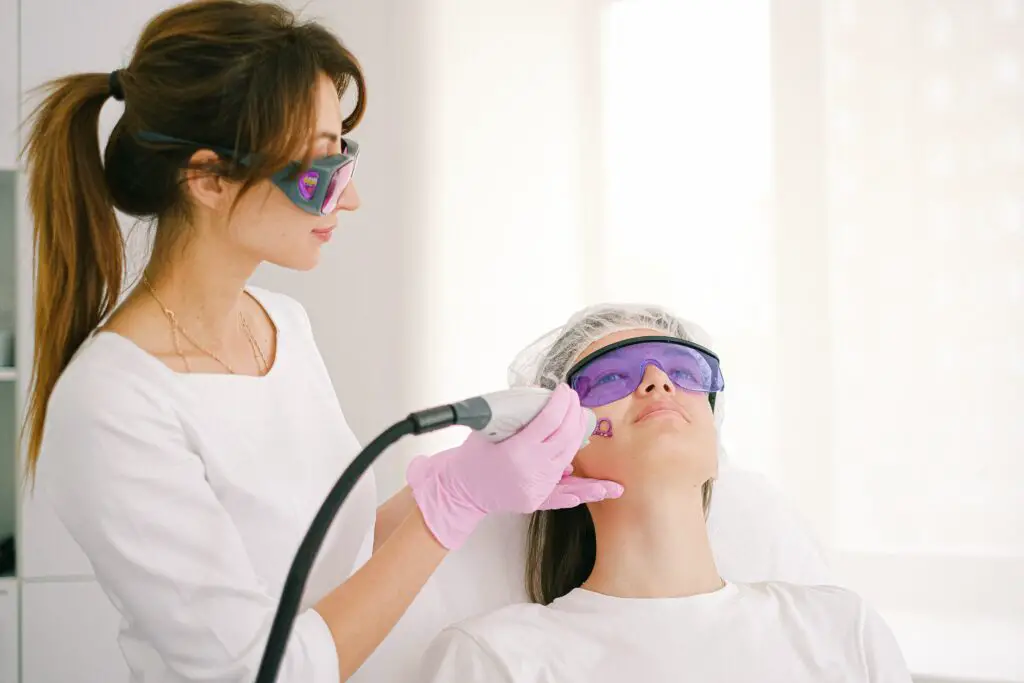Cosmetologists provide a range of services with an emphasis on the hair, skin, and nails to assist clients to improve their look. These professionals employ combs, brushes, curling irons, blow dryers, and other tools to trim, color, wash, condition, and style hair. Let us know more detail about ‘What Are The Pros And Cons Of Being A Cosmetologist?’.

What Are The Pros And Cons Of Being A Cosmetologist?
Furthermore, cosmetologists provide treatments like facial hair waxing, cleaning of wigs and hairpieces, pedicures and manicures, makeup application, and also hair and scalp treatment.
More than 600,000 people work as cosmetologists, hair stylists, and hairdressers in the United States. Cosmetologists must be licensed by the state, and attending a cosmetology school is a prerequisite for doing so.
Are you still debating whether or not cosmetology school is for you? Discover the benefits and drawbacks of attending cosmetology school by reading through this post till the end.
The Pros and Cons of the profession in question are numerous. Here are a few of them: Pros: Direct communication, entrepreneurship options, job satisfaction. Cons: Demands on the body, income, and license requirements.
Pros: Direct Communication
Cosmetologists have the chance to develop strong relationships because this line of work necessitates interaction with people of all ages and socioeconomic backgrounds, both as clients and coworkers. Interaction with coworkers may result in invitations to take part in social events, generating further chances to build relationships.
Cons: Demands on the body
As a result of spending so much time on their feet, cosmetologists may experience lower back, leg, and foot pain. They also work with materials like chemicals and dyes that could aggravate their skin and irritate their eyes or cause allergic symptoms. Employees in this area run the risk of ingesting chemicals from hair if they eat or touch their mouths after handling combs and other hair accessories, if they inhale chemical dust and solvents, or absorb chemicals via their skin.
Pros: Entrepreneurship Options
Cosmetologists who possess business management skills have a variety of options for self-employment. A few cosmetologists lease booth space at spas, resorts, and hair salons. By doing this, a cosmetology expert can establish a client base without having to incur the cost of leasing a separate commercial facility. Immediately they have a reasonable amount of clients to sustain their enterprise, cosmetologists may choose to open their salons. Cosmetologists who work for themselves have the autonomy to choose their rates and working hours.
Cons: Income
Typically, cosmetologists receive extra tips aside from their hourly pay. The average hourly salary for hairstylists, cosmetologists, and hairdressers in 2019 was just $12.54.
The average hourly wage for all other occupations in the same year was about $17.00, which is about $5.00 per hour less. Income from job tips may vary because not all clients tip in similar ways for cosmetology services. Although it is recommended to leave a 15% tip for manicure services and a 15%–20% tip for hair styling services, not all customers do so.
Pros: Job satisfaction is a plus
Professionals in the beauty industry have the chance to make people feel good about themselves, which makes their work personally fulfilling.
Cons: License requirements are a drawback
Cosmetologists must receive a professional license before working in any state. Before deciding to pursue a career in this sector, it is necessary to be aware of your state’s regulations as they differ from state to state. For instance, to be eligible to apply for a license in Alabama, students studying cosmetology must complete at least 1,500 hours of training. Before taking the license exam, Pennsylvania simply needs students to get at least 1,250 qtraining hours.
Conclusion
If you would like to be a cosmetologist, you should evaluate all the pros and cons listed in this post. If you are cool with them, then you can proceed. If not, consider trying other professions.
The benefits of cosmetology education far outweigh the drawbacks. It’s time to begin your training if you feel ready to kickstart your cosmetology career.
Frequently Asked Questions
- What aspect of being a cosmetologist is the most challenging?
Building a stable client base is one of the profession’s biggest obstacles and it requires a lot of effort, perseverance, and patience. Cosmetologists sometimes work overnights and during weekends to meet their clients’ schedules.
- Are cosmetologists underpaid?
In May 2019, $12.54 per hour was the average wage for cosmetologists, hairdressers, and hairstylists. While the lowest 10% made less than $8.86 per hour, the top 10% of earners made more than $24.94 per hour.
- Is cosmetology physically taxing?
Your back, legs, and feet will suffer if you work as a cosmetologist. Long periods spent standing without any rest can have negative effects on your body over time. Chemicals and dyes are also used by cosmetologists daily. These substances include formaldehyde and nitrosamines, among others which tend to have adverse effects at times.